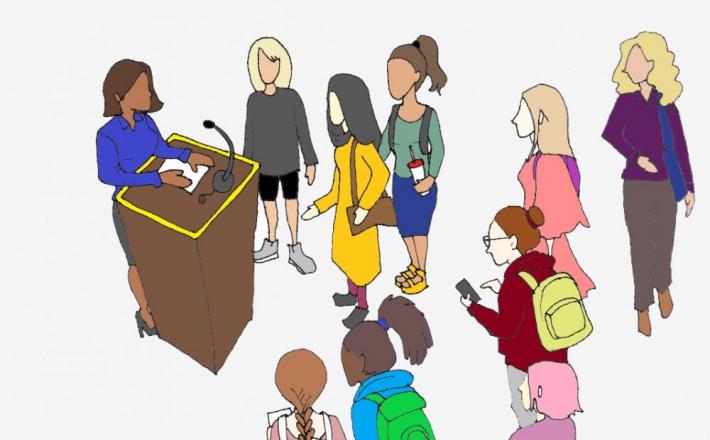
The greater presence of women politicians in public is also a greater motivation for other women to appear in public. While BiH politicians agree that better education of women in the media educates and better understands gender and gender equality, media workers in BiH believe that women in politics must articulate their voice and not allow themselves to be just a “decoration of democracy”.
Although certain legal measures have been taken in Bosnia and Herzegovina, in particular the introduction of quotas in the BiH Election Law and the Law on Financing of Political Parties, there has still been no substantial change in the status and influence of women in political life. They are still on the margins of political power, without influencing policy formulation and implementation.
Insufficient support of political parties to members in creating political programs and political affirmation is a great obstacle to equal representation of women in political life, although the statutes of political parties do not explicitly prevent women from participating in the work of party bodies.
Politician Nedžada Avdić points out that usually when we talk about quotas on electoral lists, we say 40 percent of women, although it is not explicitly written anywhere, but is written by 40 percent of the underrepresented sex:
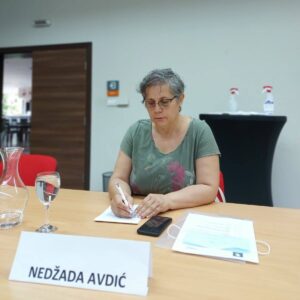
“I think that is the first thing that needs to be corrected, because women are not less represented. When it comes to representing women in the media, it’s not always up to journalists. “Politicians themselves should initiate communication with journalists, and not just wait for journalists to ask them something,” Avdic believes.
Women, although the demographic majority in BiH, are still a minority in the political world. Selvedina Sarajlić-Spahić, a member of the ZDK Assembly, points out that journalists should work to ensure that the information they publish is not colored by stereotypes, which, as she says, often happens:
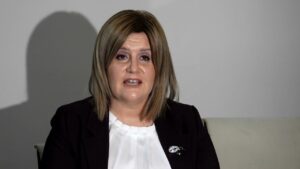
“After the sessions of the Assembly, journalists usually pull male MPs by the sleeve to give statements, and they only pass by women. I always wonder why this is so, but I don’t think that the media are responsible for that in that sense either “, says Selvedina Sarajlić-Spahić.
Zlatiborka Popov-Momčinović, a professor at the University of East Sarajevo, agrees with her, emphasizing that the Law on Gender Equality is mostly violated in BiH.
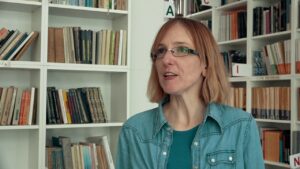
“Recent research has shown that women vote for women in elections more than men. On the other hand, no one says that women should have an advantage just because they are women, but gender equality is our legal obligation and everyone should be involved, including the media, “said Professor Popov-Momčinović.
Journalist Velida Kulenović stated that out of 31 deputies in the City of Zenica, only three are women.
“In 2016, there were 5, and in 2012, even 7. Among the elected ministers, there is currently only one woman, and there is not a single woman mayor. Also, so far we have not had a prime minister’s wife. In the election processes so far, it was evident that the classic media were the best platform for presenting candidates. Today, however, there are social networks and various other platforms used for political marketing. “Stereotypes in the media when it comes to representing women are extremely present, and politicians are often victims of misogynistic attacks through social networks, and this trend is increasingly present,” said Kulenovic.
Una Harčin, Minister in the Ministry of Justice and Administration at the Government of Tuzla Canton, is the only woman in the Government of Tuzla Canton and the youngest member of the Government.
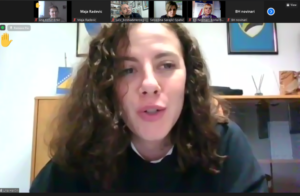
“When you get a certain function, then you need to do your job and dedicate yourself to it. In that context, the media is also interested in what you are doing and you need to make statements. I think a lot depends on how the women themselves put themselves there. We have to articulate our own voice, because the fact is that women very often allow themselves to be the decoration of democracy. That is why I think that a legal threshold should be introduced when it comes to executive positions “, says Harchin.
Ivana Marić, a political analyst from Sarajevo, emphasizes that BiH is still a traditional and patriarchal society and that the position of women in politics is a copy of the position of women in the family.
“As long as women accept a subordinate position in the family, they will have such a position in professional life. For a better position of women in any profession, it is necessary that they first fight for a better position in their families. The most successful women of today do not invoke the argument of the “weaker sex”, but fight for their position as lions, ie as lionesses “, emphasizes Marić.
She believes that it is a great pity that there are no more women in politics in BiH, because they would certainly make a great and positive contribution to the development of the state.
“We often hear women complain that men do not allow them to enter politics and progress. I don’t understand who gave men the right to decide that? It is precisely the fact that many women think that men decide on women’s political activity that best illustrates why there are no more women in politics. Women, however, are a little more in the world and instead of fighting, we expect men to “let” us into politics. However, I think that the fact that women are no longer in BiH politics is not up to men , to the point of insufficient interest of women in politics “, says Marić.
Snežana Ružičić, Mayor of Jezero, believes that it is very important for women politicians to have media space:
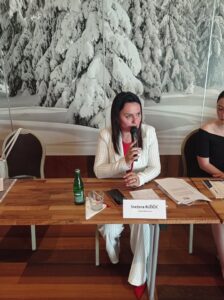
“It is true that the media give enough space for what needs to be heard, and I think that women themselves should take a certain position in the media space. We have to show more courage, to be brave, but also to talk loudly about what is important for our society and our policies “, explains Ružičić.
Member of the HNK Assembly Milica Pehar (HDZ) pointed out that women in BiH society are generally underestimated, and that this is the reason why it is harder to come and even harder to pass the electoral lists.
“The higher the political level, the less women there are. Women are underrepresented in the media, and the media does not do much to change the position of women. On the other hand, the obligatory quotas on the electoral lists are not enough, so it is necessary to act in several directions on this issue “, believes Pehar.
Women in politics must fight for more space in the media, offering attractive media content. It is a devastating fact that there are no women in the current Government of the Herzegovina-Neretva Canton, while out of 35 councilors in the Mostar City Council, only eight are women, points out Tihana Đevenica from the Čapljina Radio Station.
She believes that the representation of candidates in election campaigns is the ratio of two men to one woman, and that the media are not the ones who can suggest to political parties which candidates to choose for the presentation of their campaigns.
The columnist and editor of the Bljesak.info portal, Berislav Jurič, is of the opinion that women in the political life of BiH still mostly act in the background, for which the media are not to blame.
“The media are not to blame for what is being placed in politics. The eyes of the public are different from the media. We have to market what the public wants, and women must not be just “make-up in politics”, says Jurič.
Analyst Ivana Marić agrees that women politicians must not be an “ornament”, but that they are expected to do the same as politicians, and that is to work in the interest of citizens and to fight for BiH to become a country to which people will return. not to leave it.
“There are several women politicians in BiH who are doing their job well and who have fought for a place at the top exclusively through their work and struggle. Unfortunately, most came here only because they are women and instead of taking advantage of the opportunity, they turn into mere executors of the instructions of superior men. That is why I do not give preference to women when voting, but I primarily look at whether that person will represent the citizens in the parliament or myself and my superiors “, concludes Marić.
The visibility and presence of women politicians in public in Bosnia and Herzegovina is particularly low in the pre-election months. This is a consequence of the technique of gender domination applied by political party elites, as well as the fact that the media re-emphasize dominant ideologies and gender stereotypes about women in politics, which inevitably has a negative impact on their election results.
Dragana Erjavec
This text was created within the project “Women’s Press Forum” funded by the Embassy of the United States of America in BiH. The contents of this text are the sole responsibility of the authors and the Association of BH Journalists, and do not necessarily reflect the views of the Embassy of the United States of America in BiH.



